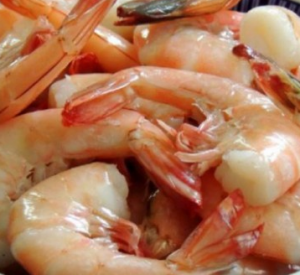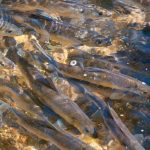Tag Archives: cannonball jellyfish

Georgia extends shrimp trawling season until Jan. 15, announce the opening of commercial harvest of jellyfish
The state has extended the food shrimp harvest season 15 days until Jan. 15 and announced the opening of the season for the commercial harvest of jellyfish. Department of Natural Resources Commissioner Mark Williams announced Wednesday he was extending the season that commercial trawlers may operate in state waters that are currently open until 6:15 p.m. Jan. 15.,, .,, The DNR also announced that state waters will open for commercial trawling for jellyfish from 6:30 a.m. Jan. 1 until 8:30 p.m. March 31. click here to read the story 16:04
The Snobby Neighbors of Beaufort County – Jellyfish Company Files Suit, Video
 When jelly-fishers wanted to do business in Beaufort County, not all neighbors were supportive. Groups against the jelly-fishing are still speaking-out against an operation nearly a year later. The groups want to stop a company from unloading and rinsing cannonball jellyfish waste water into Jenkins Creek. However, that company is now suing Beaufort County over an ordinance that makes doing business harder. Video, and read the rest here 07:24
When jelly-fishers wanted to do business in Beaufort County, not all neighbors were supportive. Groups against the jelly-fishing are still speaking-out against an operation nearly a year later. The groups want to stop a company from unloading and rinsing cannonball jellyfish waste water into Jenkins Creek. However, that company is now suing Beaufort County over an ordinance that makes doing business harder. Video, and read the rest here 07:24
‘Jellyballs’ Are Serious Business
 Since 1998, shrimping boats in Georgia have been spending part of the year trawling for cannonball jellyfish under a pilot program, but they only had their first official season as a commercial fishery in 2013. “The has been about the best thing that’s happened to us,” said Howell Boone, a Georgia shrimp trawler, in a January interview with NPR. “The shrimp season [of 2013] was the worst ever in history here.” Read more here 12:37
Since 1998, shrimping boats in Georgia have been spending part of the year trawling for cannonball jellyfish under a pilot program, but they only had their first official season as a commercial fishery in 2013. “The has been about the best thing that’s happened to us,” said Howell Boone, a Georgia shrimp trawler, in a January interview with NPR. “The shrimp season [of 2013] was the worst ever in history here.” Read more here 12:37
Environmental Threat Turned Sustainable Business for the Gulf of California
 Considered a threat to the biodiversity of marine ecosystems of the Gulf of California, the cannonball jellyfish Stomolophus meleagris is intended to be exploited commercially throughout the Mexican Pacific coast where it occurs, thanks to fishing potential discovered by producers of Sonora and researchers at the Biological Research Center of the Northeast (CIBNOR). more@sciencedaily 17:23
Considered a threat to the biodiversity of marine ecosystems of the Gulf of California, the cannonball jellyfish Stomolophus meleagris is intended to be exploited commercially throughout the Mexican Pacific coast where it occurs, thanks to fishing potential discovered by producers of Sonora and researchers at the Biological Research Center of the Northeast (CIBNOR). more@sciencedaily 17:23














































